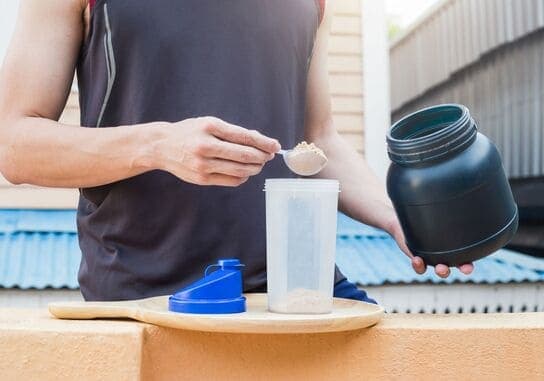Creatine for Women: Dosage, Benefits, and What to Expect

August 16, 2024
In recent years, creatine has gained immense popularity among fitness enthusiasts, and women are no exception. Whether you're a seasoned athlete or just starting your fitness journey, understanding the role of creatine can help you maximize your performance and achieve your goals. In this comprehensive guide, we'll delve into the best creatine options for women, explore the optimal dosage, uncover the myriad benefits, and set realistic expectations for your supplementation journey.
Understanding Creatine: What Makes It the Best Choice for Women
Creatine is a naturally occurring compound found in small amounts in certain foods and synthesized by the body, primarily in the liver, kidneys, and pancreas. It plays a crucial role in energy production, especially during high-intensity, short-duration activities like weightlifting and sprinting. For women looking to enhance their fitness regimen, choosing the best creatine supplement can make a significant difference.
Why Creatine is Essential for Women
- Enhanced Muscle Strength and Performance: Creatine helps replenish adenosine triphosphate (ATP), the primary energy carrier in cells, allowing for improved performance during intense workouts.
- Increased Muscle Mass: Regular supplementation can lead to muscle growth by increasing water content in muscle cells and promoting protein synthesis.
- Improved Recovery: Creatine aids in faster recovery post-exercise by reducing muscle cell damage and inflammation.
- Cognitive Benefits: Emerging research suggests that creatine may enhance cognitive functions, providing mental clarity and focus.
Selecting the Best Creatine for Women
When searching for the best creatine, it's essential to consider factors like purity, form, and additional ingredients. Here are some top options:
- Creatine Monohydrate: The most researched and cost-effective form, known for its efficacy in enhancing performance.
- Micronized Creatine: Offers better solubility and absorption compared to standard creatine monohydrate.
- Creatine HCL: Known for its enhanced solubility and reduced bloating, making it a preferred choice for many women.
- Buffered Creatine: Designed to improve stability in the stomach, reducing the likelihood of gastrointestinal discomfort.
Pro Tip: Look for products that are third-party tested to ensure purity and quality. Brands like Optimum Nutrition, Creapure, and MuscleTech are renowned for producing high-quality creatine supplements.
Dosage Guidelines: How Much is Best for Women?
Determining the right dosage is crucial to maximize the benefits of creatine without experiencing unwanted side effects. While individual needs may vary, general guidelines can help you find the optimal dosage.
Standard Dosage Recommendations
- Loading Phase (Optional):
- Dosage: 20 grams per day, split into 4 doses of 5 grams each.
- Duration: 5-7 days.
- Purpose: To rapidly saturate muscle creatine stores.
- Maintenance Phase:
- Dosage: 3-5 grams per day.
- Duration: Ongoing after the loading phase.
- Purpose: To maintain elevated creatine levels in muscles.
Alternative Dosage Strategies
- No Loading Phase: Some prefer to skip the loading phase and start with 3-5 grams daily. This approach gradually saturates muscle stores over 3-4 weeks without the potential for gastrointestinal discomfort associated with higher initial doses.
Factors Influencing Dosage
- Body Weight: Heavier individuals may require slightly higher doses.
- Activity Level: Highly active women or those engaged in intense training may benefit from the higher end of the dosage spectrum.
- Dietary Intake: Individuals consuming high amounts of creatine-rich foods (like red meat and fish) may need less supplementation.
Safety and Side Effects
Creatine is generally safe for most women when taken within recommended dosages. However, potential side effects include:
- Water Retention: Temporary weight gain due to increased water content in muscles.
- Digestive Issues: Some may experience bloating or stomach discomfort, especially during the loading phase.
- Kidney Concerns: While creatine is safe for healthy individuals, those with pre-existing kidney conditions should consult a healthcare professional before use.
Pro Tip: Always stay hydrated while supplementing with creatine to support kidney function and overall health.
Benefits of Creatine for Women: Beyond Muscle Gain
While creatine is often associated with muscle building, its benefits extend far beyond that. For women, in particular, creatine offers a range of advantages that can enhance both physical and mental well-being.
Physical Benefits
- Enhanced Athletic Performance: Increased ATP availability allows for better performance in high-intensity activities, leading to more effective workouts.
Our Top Recommendations

Optimum Nutrition Micronized Creatine Monohydrate Powder
Micronized for easy mixing, supports muscle growth and endurance.
See on Amazon$0.35 per 5g serving

Nutricost Creatine Monohydrate Micronized Powder
Third-party tested, non-GMO, 5g of pure creatine per serving.
See on Amazon$0.2 per 5g serving

NSF Certified, supports muscle power and recovery.
See on Amazon$0.46 per 5g serving

ProMix Creatine Monohydrate Powder
Micronized, additive-free, ideal for performance and recovery.
See on Amazon$0.36 per 5g serving

NOW Foods Sports Nutrition Unflavored
100% pure creatine, GMP certified, boosts strength and endurance.
See on Amazon$0.2 per 5g serving
- Improved Muscle Recovery: Reduces muscle soreness and accelerates recovery times, enabling more frequent training sessions.
- Bone Health: Some studies suggest that creatine, combined with resistance training, may improve bone density, which is particularly beneficial for women at risk of osteoporosis.
- Body Composition: Helps in reducing body fat while preserving lean muscle mass, contributing to a toned and defined physique.
Cognitive Benefits
- Mental Clarity and Focus: Creatine supplementation has been linked to improved cognitive functions, including memory and attention.
- Mood Enhancement: Emerging research indicates that creatine may have a positive impact on mood, potentially alleviating symptoms of depression.
Long-Term Health Benefits
- Neuroprotection: Creatine may offer protective benefits against neurodegenerative diseases by supporting cellular energy production.
- Glucose Metabolism: Some studies suggest that creatine can enhance glucose metabolism, which may aid in managing blood sugar levels.
Real-Life Example: Sarah, a 35-year-old fitness enthusiast, noticed not only increased strength and endurance but also improved focus during her workouts after incorporating creatine into her routine. Additionally, she experienced faster recovery times, allowing her to train more consistently.
What to Expect When Taking Creatine: A Practical Guide
Embarking on a creatine supplementation journey requires understanding what changes to anticipate and how to integrate it seamlessly into your routine. Here’s a practical guide to help you navigate the process.
Step-by-Step Supplementation Guide
- Choose the Right Creatine:
- Select a high-quality, reputable brand offering the best creatine for your needs.
- Consider factors like form (monohydrate, HCL, etc.) and any additional ingredients.
- Determine Your Dosage:
- Decide whether to include a loading phase based on your preference and tolerance.
- Follow the recommended daily dosage of 3-5 grams during the maintenance phase.
- Timing Your Intake:
- Pre-Workout: Some prefer taking creatine before workouts for an energy boost.
- Post-Workout: Others find taking it after exercise, along with a protein shake, beneficial for recovery.
- Consistency is Key: Ensure daily intake, even on non-training days, to maintain muscle creatine levels.
- Mixing Creatine:
- With Water or Juice: Simple and effective.
- In Smoothies or Shakes: Can mask the taste and make intake more enjoyable.
- Avoid Hot Beverages: High temperatures can degrade creatine, reducing its efficacy.
- Stay Hydrated:
- Increase your water intake to support kidney function and prevent dehydration.
- Monitor Your Progress:
- Keep track of your strength, endurance, and recovery times.
- Adjust dosage if necessary, based on your body's response.
Tips for Maximizing Creatine Benefits
- Pair with Resistance Training: Combine creatine supplementation with a structured strength training program for optimal muscle growth.
- Maintain a Balanced Diet: Ensure adequate protein and nutrient intake to support overall health and muscle synthesis.
- Listen to Your Body: Pay attention to how your body responds and adjust your regimen accordingly.
Common Questions and Misconceptions
Q: Will creatine make me bulky?
A: No. Creatine helps increase muscle mass and strength, but it does not inherently cause excessive bulk. Women typically have lower testosterone levels, making significant muscle gain more challenging.
Q: Can I take creatine if I'm on a vegetarian or vegan diet?
A: Absolutely. Vegetarians and vegans often have lower baseline creatine levels, making supplementation particularly beneficial.
Q: Is creatine safe during pregnancy or breastfeeding?
A: It’s best to consult with a healthcare professional before starting any supplementation during pregnancy or breastfeeding.
Conclusion: Embrace the Best Creatine for Your Fitness Journey
Creatine stands out as one of the most effective and researched supplements available, offering a plethora of benefits tailored to women's unique fitness needs. From enhancing muscle strength and performance to supporting cognitive functions and overall health, incorporating the best creatine into your regimen can propel you towards your fitness aspirations with confidence.
By understanding the optimal dosage, recognizing the wide-ranging benefits, and knowing what to expect, you can make informed decisions that align with your personal goals. Remember to choose high-quality creatine supplements, stay consistent with your intake, and pair supplementation with a balanced diet and regular exercise for maximum results.






